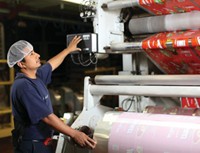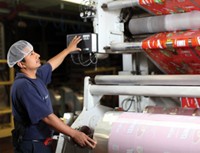Advertisement
Grab your lab coat. Let's get started
Welcome!
Welcome!
Create an account below to get 6 C&EN articles per month, receive newsletters and more - all free.
It seems this is your first time logging in online. Please enter the following information to continue.
As an ACS member you automatically get access to this site. All we need is few more details to create your reading experience.
Not you? Sign in with a different account.
Not you? Sign in with a different account.
ERROR 1
ERROR 1
ERROR 2
ERROR 2
ERROR 2
ERROR 2
ERROR 2
Password and Confirm password must match.
If you have an ACS member number, please enter it here so we can link this account to your membership. (optional)
ERROR 2
ACS values your privacy. By submitting your information, you are gaining access to C&EN and subscribing to our weekly newsletter. We use the information you provide to make your reading experience better, and we will never sell your data to third party members.
Policy
Scientist Admits Trade Secret Theft
Industrial Espionage: Plea deal, if accepted by court, will avoid a trial for former Dow researcher
by Marc S. Reisch
September 19, 2011
Former Dow AgroSciences scientist Kexue Huang has agreed to plead guilty to two counts of stealing trade secrets from Dow and an unidentified company. If a federal judge in Indianapolis accepts the deal between Huang and federal prosecutors at a hearing on Oct. 15, Huang will avoid a trial scheduled for the end of October.
Huang, 46, was arrested by the FBI in July 2010 on charges that he stole information regarding the biosynthesis of Dow’s Spinosad brand spinosyn insecticide (C&EN, July 26, 2010, page 9). Huang had worked for Dow for five years until March 2008.
The plea deal also makes it clear that Huang stole an enzyme under development for a food product from a Minnesota firm identified only as Company A. Huang sent the DNA sequence of the enzyme to a student he was mentoring in China. Huang started work at Company A after he left Dow; the unidentified firm suspended him in 2009.
According to the original indictment, soon after leaving Dow, Huang received grants from the National Natural Science Foundation of China, which underwrote work he published in late 2008 on the biochemistry of spinosyns. The indictment also charged that Huang, while still employed by Dow, directed research in China on some of the same spinosyn-related R&D he was conducting for Dow.
Although the original indictment contained 17 counts against Huang, the plea agreement covers only two counts. On the count of theft of trade secrets to benefit a foreign government, he could receive up to 15 years in prison and a $500,000 fine. On the count of theft alone, he could receive a term of 10 years and another $500,000 fine.
Dow has had problems with industrial espionage before. In February, a federal jury in Baton Rouge, La., convicted Dow researcher Wen Chyu Liu of stealing trade secrets pertaining to the elastomer chlorinated polyethylene and selling them to Chinese firms.




Join the conversation
Contact the reporter
Submit a Letter to the Editor for publication
Engage with us on Twitter